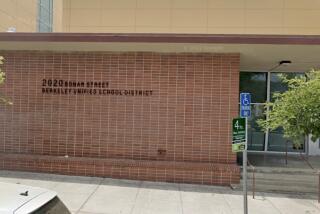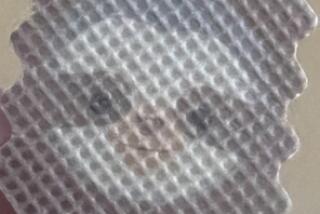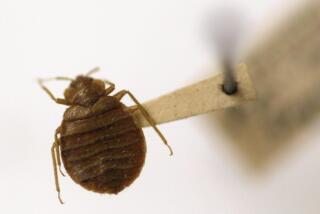Health concerns fuel Greek parents’ worries about refugee children in local schools
The mid-morning coffee shop chatter was dominated by whether some residents of the leafy Greek suburb of Oraiokastro are bigots, concerned parents or both for saying they would physically block refugee children from attending local schools.
Ilias Karagounidis, an associate of Mayor Asterios Gavotsis, said a statement from some parent associations indicating that they would take over and occupy the schools to prevent refugee children from using them because of health concerns was unfortunate.
“You must say you oppose this for specific reasons: they’re not vaccinated, whatever,” he said at the “Gold” coffee shop. “We’re talking about children, and as a parent you represent children.”
Outside the 5th Elementary School, Panayiotis Soupiadis, 38, whose 7-year-old son attends the school, bristled at the thought of being called racist.
“This label is unfair,” said Soupiadis, who added that parents donated clothing, food and medicine to refugees. “The main issue is the protection of the health of our children.”
The controversy, which has resulted in some students encountering a gauntlet of television cameras set up outside school grounds, stemmed from Greece’s Ministry of Education’s plan to enroll at least 20,000 migrant and refugee children in schools nationwide.
Members of three parents associations in Oraiokastro issued their statement this week.
Overnight, graffiti appeared on the walls of the 1st Elementary School: “Kick the fascists;” “Migrants are the cursed of the earth;” “Migrants, my brothers.” Prime Minister Alexis Tsipras scolded them in a tweet. Some residents of the well-heeled suburb were bewildered.
“The issue has been blown out of all proportion,” Karagounidis said.
The outcry over Oraiokastro’s schools is the latest sign of tension in Greece, where stranded refugees and migrants number more than 60,000. There is no torrent of Syrians, Iraqis, Afghanis coming through Greece’s islands as there was last year but a steady stream of new arrivals is adding to those stuck in the country since northern European countries sealed their borders.
A UN High Commission for Refugees planning report for 2016 estimates that as many as 100,000 people in Greece may need assistance and protection by the end of the year, with 38% of that population being children.
The initial Greek welcome, stemming from a common empathy over lost homelands and the refugee experience, is wearing thin in Oraiokastro despite the fact the town was founded early last century by ethnic Greek refugees who fled persecution in Asia Minor. Reports of tuberculosis and hepatitis in the camps in the neighborhood have been cited by some parents as their primary concern.
They said they were upset about not getting enough information about the planned integration of new students.
“No one has told us anything, not how many children will come, how they will be distributed, how long this will go on,” Soupiadis said. “We were faced with two decisions because no one had the ability to tell us about the program — to take our children from school or to act. We chose to act.”
In the UNHCR report, the agency said the Greek health ministry was working on a mass immunization campaign but also noted “shortages in the vaccine supply system are delaying the process and increasing the risks for children and the host population. Routine immunization is not integrated in the comprehensive primary health care services.”
On Friday, the Greek Center for Disease Control and Prevention said it met with representatives of non-governmental organizations to discuss the immunization program for refugees with emphasis on children entering the school system.
“With the motto ‘every refugee child at school’, all agencies are banding together to ensure the health of refugee children,” it said in a statement on its website.
There are 16,000 refugee and migrants housed in temporary accommodation in the northern Greek area, of which Thessaloniki is the main city, according to government figures. One of the biggest accommodation centers is Oraiokastro, where 1,300 mainly Syrian refugees live in tents set up around a huge warehouse in an industrial area.
A few miles away from the Oraiokastro camp, there is another bustling camp at a military base. Children mill around the entrance at this camp where tents are interspersed with former military buildings. The shiny new sign for the bus stop outside the camp reads “Refugee Center.”
Fayrouz Ajeeda, 26, from Dara in Syria, has been in the camp for six months with her four children, ages 1 to 10. She wants to join her husband in Austria.
When asked if she wants her children to go to school, she shakes her head. Drawing her bright pink scarf more closely around her, she shows her priorities by gesturing to her wedding ring finger:
“I don’t want them to go to school, but to Austria,” she said. “To be with their father, in Vienna.”
More than 20,000 refugee children in Greece are without school with many having missed out on months or years of education, the UN says. The issue of education for 3.7 million refugee children worldwide is one the UN is prioritizing to world leaders gathering next week at the UN General Assembly’s Summit for Refugees and Migrants and at U.S. President Obama’s Leaders’ Summit on the Global Refugee Crisis.
“Solutions can be found,” Karagounidis said. “We’re talking about children and they have a right to education, all of them. With screams and shouting, nothing can be resolved.”
Petrakis is a special correspondent.
More to Read
Start your day right
Sign up for Essential California for news, features and recommendations from the L.A. Times and beyond in your inbox six days a week.
You may occasionally receive promotional content from the Los Angeles Times.






